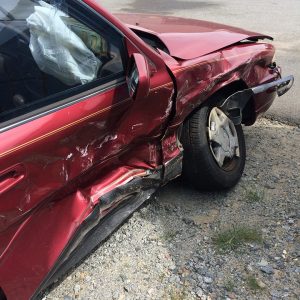Drunk Driving (DUI), Car Accidents, & Pennsylvania
 Our criminal defense law firm represents individuals charged with drunk driving in Pennsylvania and New Jersey. It’s important to understand that regardless of the jurisdiction, the burden is always on the prosecution to prove a person guilty beyond a reasonable doubt. This burden applies to each and every element. In a drunk driving case a critical element is impairment, in addition to establishing actual physical control of the vehicle (i.e. operation).
Our criminal defense law firm represents individuals charged with drunk driving in Pennsylvania and New Jersey. It’s important to understand that regardless of the jurisdiction, the burden is always on the prosecution to prove a person guilty beyond a reasonable doubt. This burden applies to each and every element. In a drunk driving case a critical element is impairment, in addition to establishing actual physical control of the vehicle (i.e. operation).
General Impairment DUI
If a person is charged with General Impairment DUI, the prosecution does not need to prove a specific BAC level but only that the person was incapable of safely operating a motor vehicle on the road in Pennsylvania (Section 3802(a)(1))
To meet its burden of proof the prosecution may attempt to introduce both direct and circumstantial evidence which can include, but is not limited to, the individual’s actions and behaviors, including the manner of driving, the ability to pass a field sobriety test, the person’s demeanor, his or her physical appearance, and other physical signs of intoxication. It is important to keep in mind that the prosecution is not required to prove the person actually consumed alcohol but only that he was incapable of safe driving due to some impairment, which can include the consumption of alcohol and/or drugs (Section 3802(a)(2). In many DUI prosecutions a key piece of circumstantial evidence that the prosecution attempts to introduce is a vehicle accident involving personal injury or property damage. This is actually a separate DUI offense which subjects a person to more severe penalties than the basic impairment DUI under Section 3802(a). A person convicted under Section 3802(a) involving an accident is subject to a mandatory minimum license suspension (12 months) and 2 days in jail, whereas a General Impairment DUI, non-accident incident will not subject the person to a license suspension or any jail time.
Impairment at the Time of Accident
If a person is charged with an accident DUI under the general impairment statute, the prosecution must establish impairment at the time of the accident. Keep in mind that even if police come upon a person who is intoxicated after an accident, this is not proof beyond a reasonable that the person was driving while impaired at the time of the accident. The prosecution must establish a temporal connection between the accident and the person’s impairment. This can be difficult if the police did not actually observe the accident and the prosecution can’t call a witness to testify it. Frequently drunk drivers strike parked vehicles and owners call police based on the vehicle damage without actually seeing the accident which caused the damage.
Admitting to Alcohol Consumption and DUI
Even if a person admits to police that they had consumed alcohol earlier that day, it is insufficient evidence to demonstrate that the defendant was under the influence of alcohol or had imbibed a sufficient quantity of alcohol to render the person incapable of safe driving. Even if the prosecution can establish the defendant had an odor of alcohol, appeared confused, and failed his field sobriety test, they must still relate back the person’s condition at the time when they came in contact with police to the time the person was driving. This can be very difficult if not impossible! This is frequently a situation where police arrive after the crash and there are no witnesses to testify as to how the crash occurred or the person’s condition following the accident.
When police arrive after an accident with the drunk driver already out of the vehicle it is almost impossible for the prosecution to convict the person of more serious DUI offenses under Section 3802(a)(2), 3802(b), and 3802(c). All these subsections of the DUI statute subject the person to a license suspension even if it’s the person’s first time offense. Without an eye witness the prosecution will be unable to establish the person had a specific BAC level (over .08) within 2 hours of driving.
For more information on DUI in Pennsylvania I encourage you to read my book “Five Ways to Fight and Win Your Pennsylvania DUI Case”.


